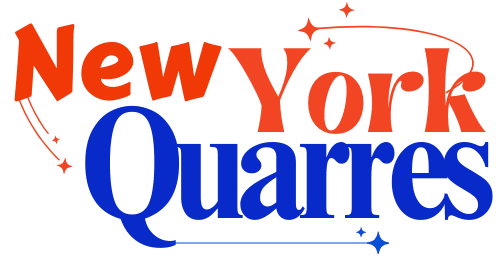The rapid pace of financial transactions that cross borders demands that organizations develop robust methods for securing sanctions, due to the growing demands of regulators. The combination of growing rules and constantly changing sanctions databases has forced conventional instruments for regulating compliance beyond their limits.
Artificial intelligence has become an ingenious method that allows companies to assess and identify, and manage the risks of sanctioned people and organizations, as well as countries.
Artificial intelligence systems are an essential component of modern sanctions screening, which assists organisations in maintaining their quality of compliance and enhancing the efficiency of operations.
Understanding Sanctions Screening
To comprehend the function of AI We must first identify what sanctions screening actually is. The purpose is to block businesses from working with groups who are part of restricted or blacklisted groups.
Most industries, which include financial and logistics services along with insurance and cryptocurrency, have sanctions screening that is legally required. The manual screening of watchlists that are continuously updated could lead to delays in processes, as well as human error or even random positive matches. This is the stage at which Artificial intelligence can be of assistance.
The Challenges of Traditional Screening Systems
The older versions of screening systems depend on rules-based logic, words, and static databases for their job. Traditional screening systems using these techniques detect obvious matches; however, they’re not able to handle complex situations that include spelling errors and a lack of alphabetical information. Screening methods can result in numerous false positives and force human reviewers to look over each alert.
The most risky part of screening for sanctions is that the real threat is not noticed. Global companies are facing serious consequences if they fail find sanctioned entities since it could result in sanctions both financial and legal, and harm their reputation. Companies require advanced tools to conduct their complex screening procedures which is why Artificial intelligence is the most effective solution.
How Artificial Intelligence Improves Sanctions Screening?
Artificial intelligence employs intelligent algorithms for sanctions screening that collect information from data, and also develop adaptive capabilities and make choices in the context of the context. The following improvements can be made possible through AI technology and its applications within the process:
1. Enhanced Phrase Matching and Entity Key
Artificial intelligence systems can provide greater recognition of fuzzy matches than conventional systems. The system is able to recognize facts that refer to a particular person through the analysis of spelling variations, as well as names of various people and cultures, as well as names with various transliterations.
2. Natural Language Processing (NLP)
AI systems supported by NLP technology can interpret the data in its context. Data that is contained in unstructured data recorded in customer records and also in transaction memos and emails. The system examines descriptions and aliases of sanctions lists along with ordinary names.
3. Reduced False Positives
Machine learning algorithms improve their capacity to screen by processing unsuccessful and positive results from previous screenings. Through continuous learning the system, it improves its ability to differentiate between hazardous matches from safe ones. This results in less false alarms, which enables compliance teams to work more efficiently.
4. Real-Time Monitoring
AI-powered software for screening reviews several transactions simultaneously to spot the suspicious transaction in real-time. The rapidly changing industries such as banking and transfer and cryptocurrency exchanges, are heavily dependent on this rapid technology.
5. Automated Decision-Making and Escalation
Advanced systems are used for two reasons. They can detect suspicious matches. make use of a risk score to determine the cases that require human attention and make it more efficient for researchers to handle critical problems.
Artificial Intelligence and Regulatory Compliance
AI technology can improve operational efficiency, however it is not in compliance with the regulatory rules. AI technology is receiving approval from regulators, however they need systems that assure open operations ethics, ethical conduct, and accountable decisions. Compliance teams need to ensure that they’re making use of AI tools that can be audited with a manner that eliminates bias.
Businesses must use ethical methods for the screening procedures for sanctions because they are dealing with sensitive identity information.
The Human + Artificial Intelligence Hybrid Model
AI aids in improving the effectiveness of human compliance officers instead of replacing them. Screening systems for sanctions get their best results when they use a combination of AI technology that performs the bulk of the work and human operators who make the final call. The combination of human-based experience together with AI technology results in improved accuracy and speedier handling of cases. It also decreases the number of compliance staff members who burn out.
It is essential to think about these factors when employing AI systems for screening for sanctions. Companies that plan to utilize AI to check sanctions operations need to be aware of these important factors:
The quality of data influences the extent of performance Artificial Intelligence performs because it is dependent on the information it is able to use to use to train. Companies must make sure that they keep their information regarding transactions and customers as accurate and clear.
Companies should pick AI systems that offer complete audit trails as well as clear results. Your AI model should be reviewed often with fresh data streams, updated sanctions lists and operational feedback.
What’s the Future of Sanctions Screening with Artificial Intelligence
Smart, scalable, and compliant security screening technologies will be more essential as sanctions systems around the globe continue to evolve toward greater interconnectedness. AI systems will advance through innovations that may include predictive analytics, deep learning, and behavioral capabilities.
AI systems will soon utilize trends in transactions as well as changes in geopolitics to anticipate the risk ahead and threats, in addition to their current threat detection capabilities. Security functions will shortly expand beyond response based on lists, since the aim is to remain ahead of the risks that may be present.
Conclusion
Artificial Intelligence is revolutionizing the sanctions screening process by providing more efficient, better-informed, and more accurate tools to identify possible compliance risks. With advanced capabilities, such as Natural Language Processing, fuzzy name matching, real-time monitoring, as well as automated decisions, AI significantly reduces false positives and improves the efficiency of detecting sanctions-related entities.
However, compliance with regulatory requirements, transparency, and ethical concerns must remain at the forefront of considerations. The most efficient approach is in a hybrid model that blends AI’s power of processing and human judgment. As financial regulations around the world get more complicated, AI-driven screening tools are essential to help companies stay on top of their game, flexible, and aware of risk.
FREQUENTLY ASKED QUESTIONS:
1. What can AI help reduce false positives when it comes to sanction screening?
AI systems learn from previous screening results and can evolve over time through machine learning. This helps them discern between genuine matches and harmless ones and reduce the need for alerts.
2. Is AI by itself enough to guarantee compliance with sanctions regulations?
Not really. AI improves compliance, but it must be accompanied by human supervision. A hybrid approach that blends the speed of AI and its pattern recognition, along with human judgment, guarantees both transparency and accuracy.
3. Can AI adjust with changes to sanctions lists as well as global regulations?
Yes. AI systems are able to rapidly adapt to a changing list of sanctions, geopolitical shifts, and even new regulations to ensure their effectiveness and relevance.
4. What factors should businesses consider prior to adopting AI-based screening methods?
They should make sure to use high-quality data, employ an auditable AI models, update systems regularly with the latest sanction lists, and keep the transparency and ethics standards of the decision-making process.




